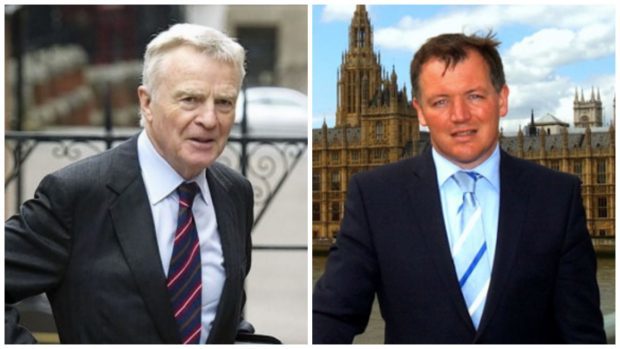Members of the public have one day left to have their say on proposals which could see newspapers forced to pay their opponents’ legal costs even if they win in court – a move some fear will threaten the future of investigative journalism.
The government is consulting on whether to implement measures contained within Section 40 of the Crime and Courts Act 2013, which could see newspapers not signed up to an officially recognised regulator pay the legal costs of both sides in libel and privacy actions brought against them.
Newspapers that are part of a recognised regulator would be exempt from the measures.
The proposals have divided opinion between those who believe the measures are “fair” and those who fear they will severely limit the scope for newspapers to conduct investigative reporting to expose corruption and wrongdoing.
Damian Collins, chairman of the culture, media and sport committee, said the proposals should not be implemented as they risk harming freedom of the press – and thus democracy – while filling solicitors’ coffers.
The Conservative MP said that while press regulation is an important issue, the “greatest threat” to the media’s credibility comes from the rise of “fake news” on social media and elsewhere, rather than from newspapers.
Mr Collins said: “Some have said that the risk of heavy costs being awarded against the newspapers is not as great as some fear.
“But I believe it is wrong in principle, and once established could create a new industry of ambulance-chasing lawyers encouraging people to hire them on no-win, no-fee terms to take up complaints against the press.
“These lawyers could set high fees and know that there would be a good chance of getting paid even if they lost the case.”
Mr Collins said the ability of the press to hold those in power to account is “one of the cornerstones of our democracy” and warned that the laws would have a chilling effect.
But Max Mosley, the former motor racing boss who was a victim of a newspaper sting – and a financial backer of Impress, a new press regulator set up in the wake of the Leveson Inquiry into press ethics which has received formal approval from the Press Recognition Panel – said Section 40 should be implemented regardless.
He said: “The principle is this, that if, let’s say, an individual hasn’t got a lot of money, wants to sue a newspaper, particularly a big newspaper, then it’s a little bit as if you and I are going on a journey and I can only afford a bus because I haven’t got a lot of money, you are rich and you can afford a Rolls-Royce and you insist on going in a Rolls-Royce.
“It’s perfectly fair for me then to say ‘OK, we will go in the Roller, but you should pay for it’.
“If a newspaper insists on the luxury of a High Court hearing then they pay both sides, but if they go to the thing that’s the whole point of Section 40, which is the inexpensive arbitration between them and the claimant, then it costs nobody anything, and of course that’s hugely beneficial to small newspapers, local newspapers, because if somebody rich takes them on it’s very intimidating, whereas if they can say to the rich person, ‘if you have got the money to sue us that’s fine, but we insist on going to inexpensive arbitration’.
“If the rich individual refuses then he pays the costs of both sides. It seems to me eminently fair.”
Most newspapers have signed up to rival regulator the Independent Press Standards Organisation (Ipso), the press-funded body which has not sought official recognition, and would therefore be faced with paying plaintiffs’ costs under the Section 40 provisions.
Consultation, available on the government website, is due to come to an end tomorrow.
